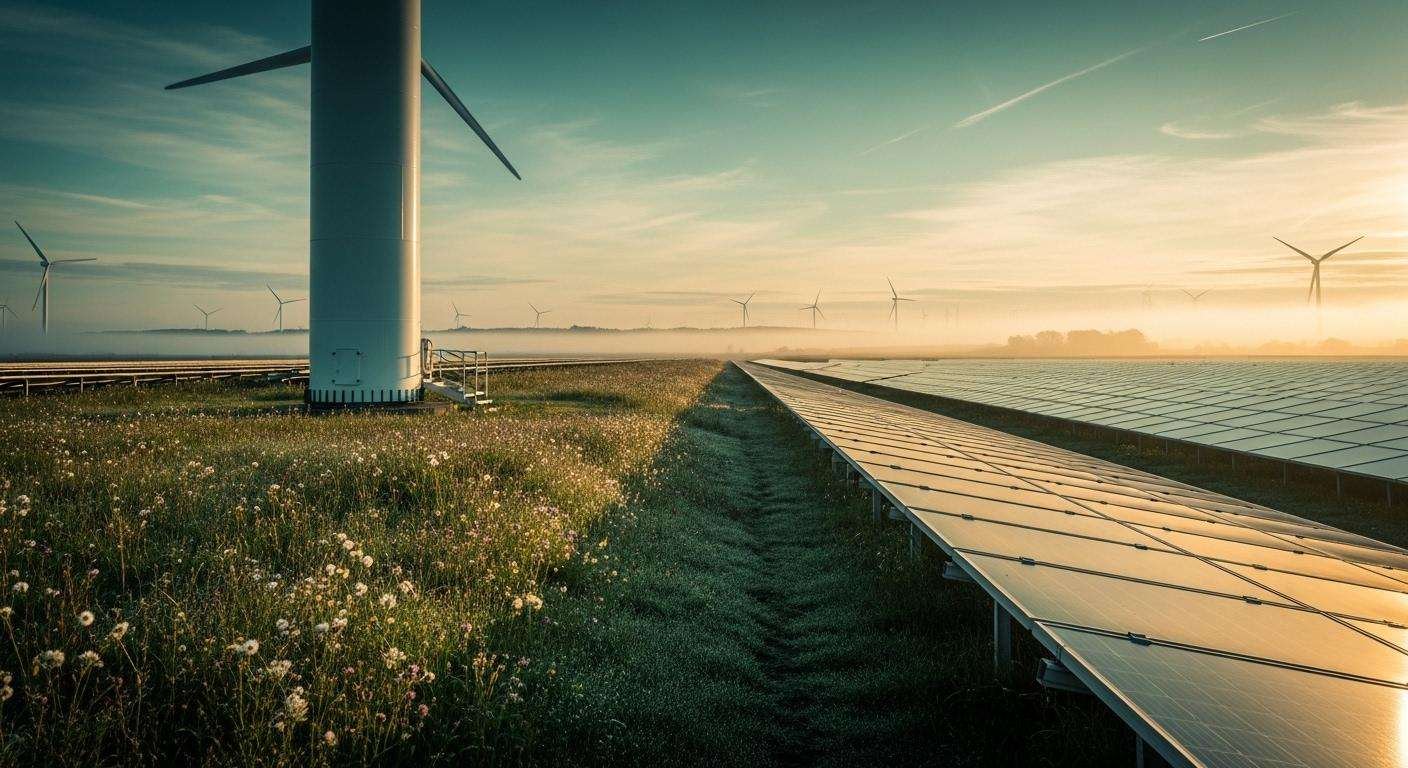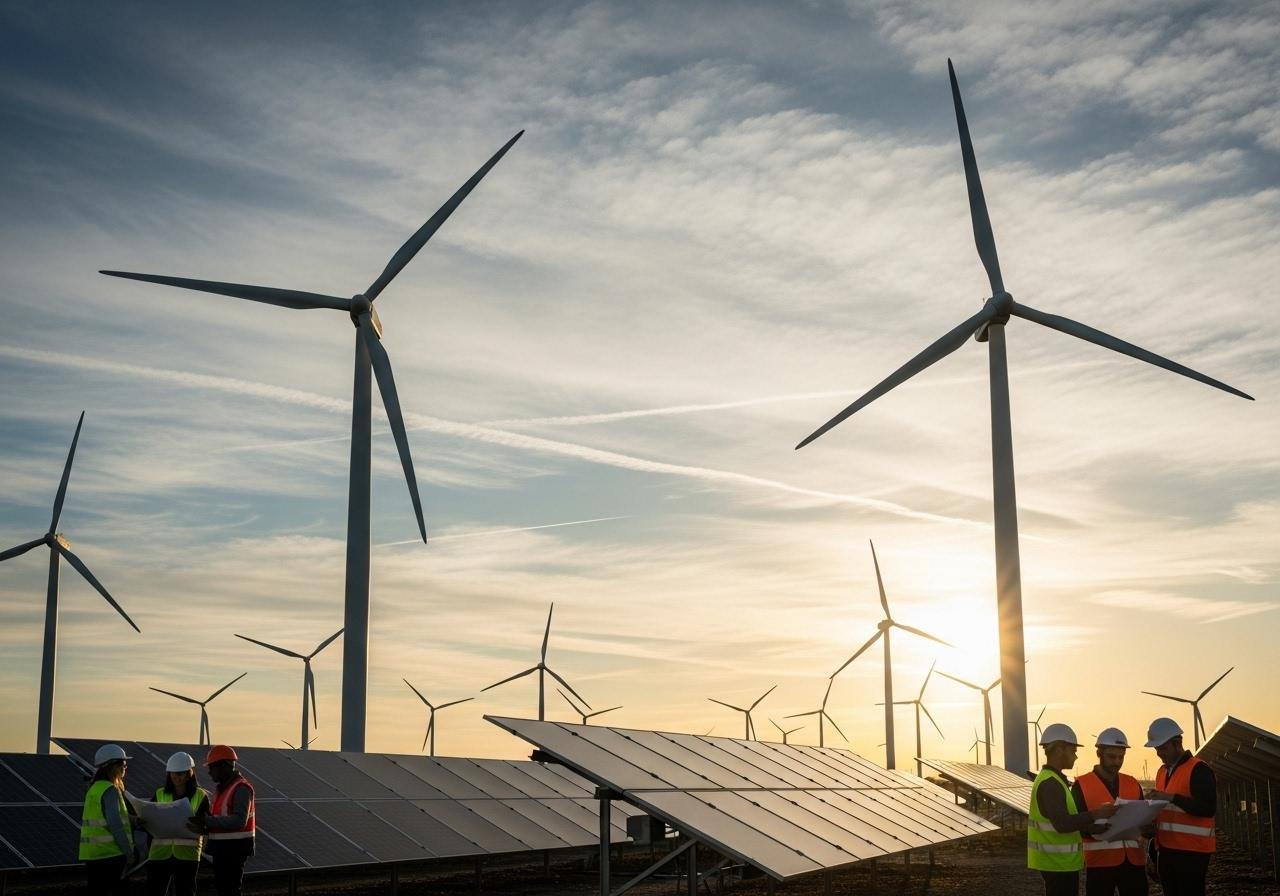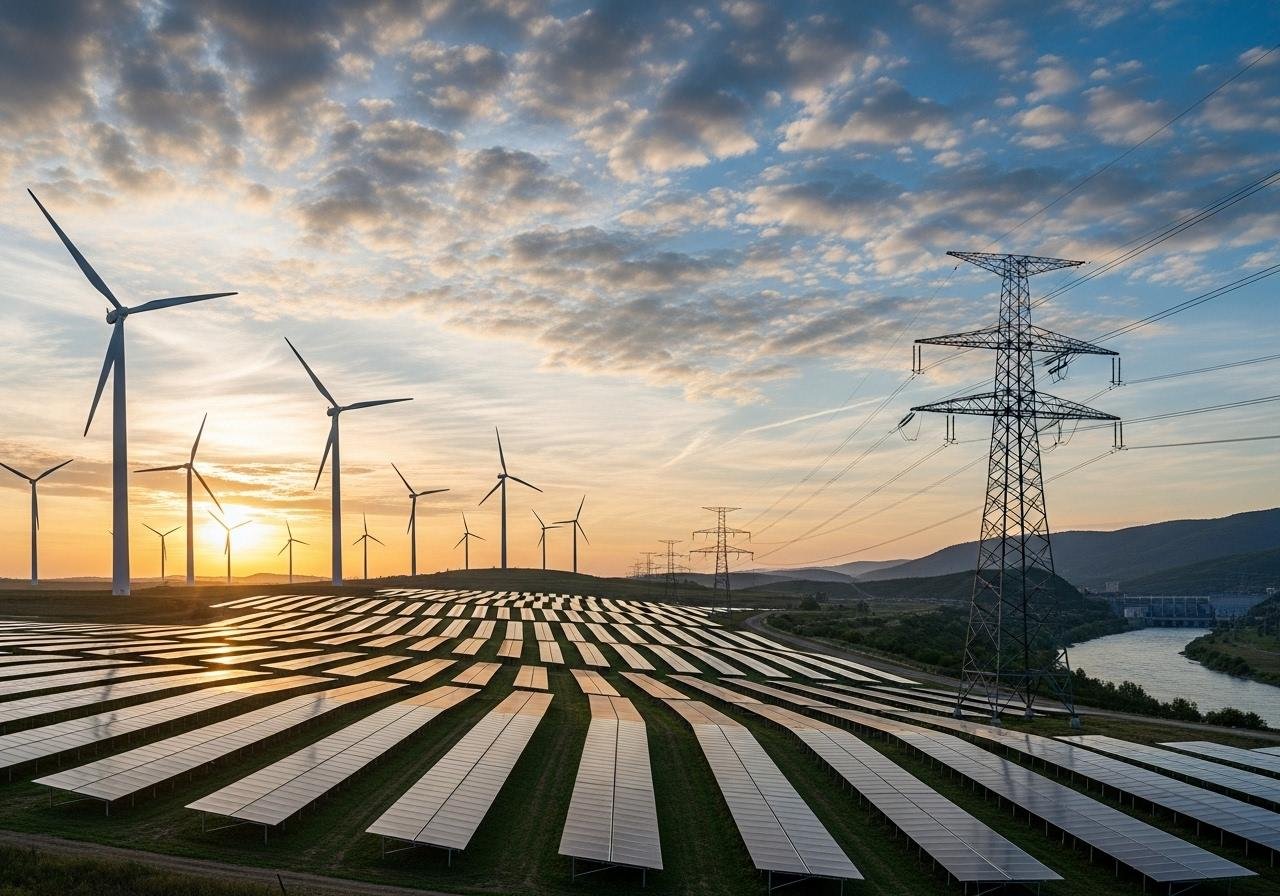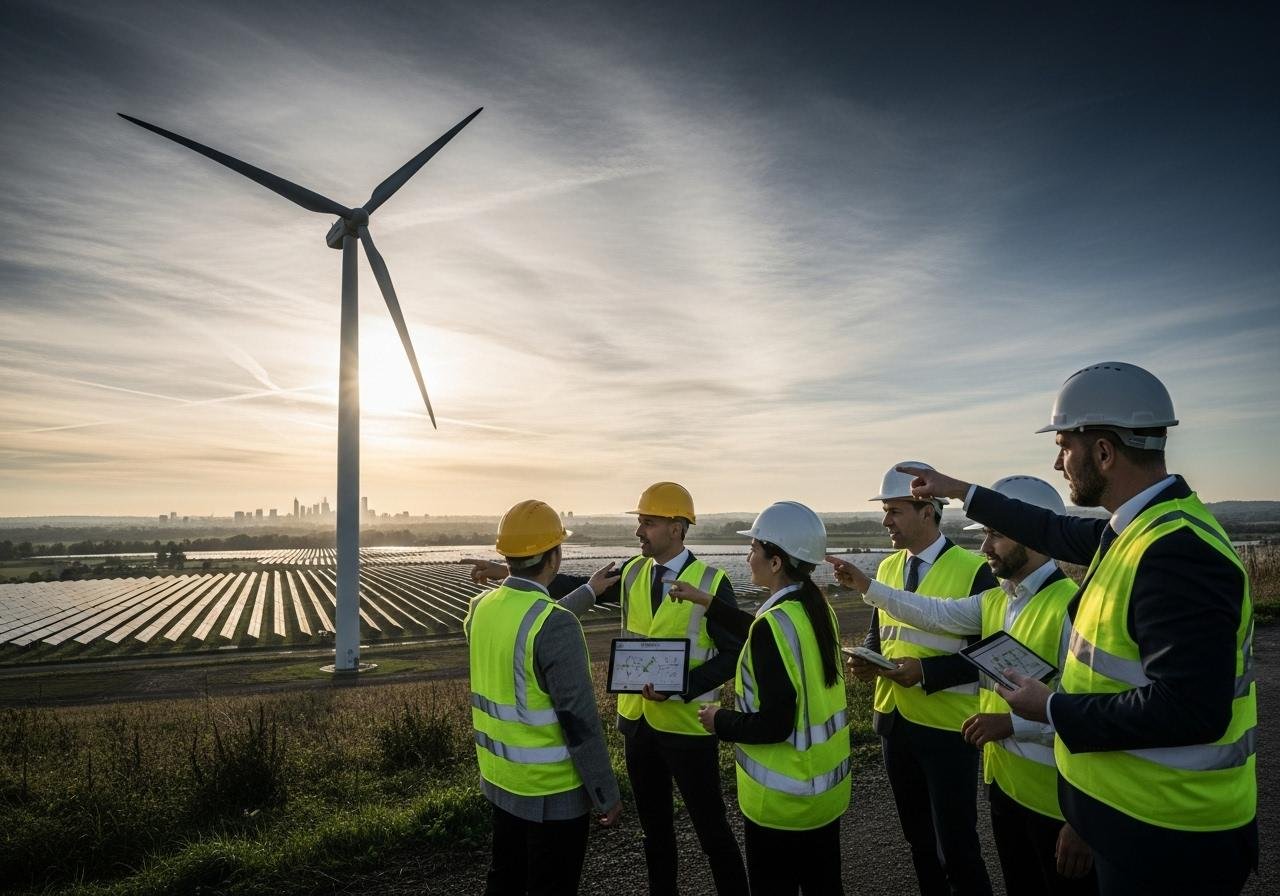
UK’s National Green Energy Plan: A Bright Future for Sustainability and Jobs
The UK’s National Green Energy Plan is not just a strategy but a promising blueprint for a sustainable future. At the heart of this plan lies the ambitious goal to create 400,000 jobs while pushing forward the frontiers of green energy. This initiative promises a dual benefit: a cleaner planet and a thriving job market. But why is this plan so important, and how does it fit into the bigger picture of the UK’s environmental goals?
Green energy initiatives are pivotal in the transition towards sustainable environmental practices, reducing our carbon footprint, and helping the UK achieve its carbon-neutral goals by 2050. And, of course, there’s the commitment to job creation, an important aspect as economies strive for post-pandemic recovery.

Key Elements of the Green Energy Plan
The cornerstone of the National Green Energy Plan is investment in renewable energy sources. The UK is set to harness the winds, soak up the sun, and tap into hydropower. This strategic investment not only provides sustainable energy but also stands as a sturdy pillar in the fight against climate change. The creation of robust infrastructure that supports these renewable technologies is equally important, ensuring that the energy generated can be efficiently distributed and utilized.
Support for research and innovation in the clean energy sector is another vital element. By encouraging breakthroughs in technology, the plan aims to make renewable energy more affordable and accessible. Initiatives aimed at reducing carbon emissions in key industries and transportation also play a critical role, ensuring that the national shift towards sustainability is comprehensive.

Job Creation Strategies
A plan without people is merely an idea. This is why the UK’s approach to job creation focuses heavily on training the workforce in green energy skills and careers. Training programs are set to equip workers with the skills needed in this burgeoning industry, ensuring that the workforce can meet the demands of the new energy landscape. Understanding the role of education in fostering a recycling-conscious society can provide insights into workforce training.
Partnerships between government entities, industries, and educational institutes are key. These collaborations will help target specific sectors ripe for job creation in renewable energy. Moreover, there is support for small and medium-sized enterprises (SMEs) in green energy, recognizing that innovation often sprouts from smaller entities with agile operations.

Economic Impact of the Green Energy Plan
The economic ripple effect of the Green Energy Plan is expected to be substantial. Contributions to the UK’s GDP from this sector could help rejuvenate local economies. Incentives for local businesses encourage a transition to sustainable practices, providing a supportive framework for innovation and growth. Exploring sustainable food packaging solutions is a prime example of how businesses can adapt to greener methods.
Moreover, the plan has the potential to attract foreign investment, positioning the UK as a leader in the green economy. Reducing dependency on fossil fuels not only supports environmental goals but also promises long-term economic benefits, offering a more stable energy future.

Environmental Benefits of the Green Energy Plan
The environmental benefits are as profound as the economic ones. A reduction in greenhouse gas emissions and pollution is at the forefront. Cleaner air and water contribute significantly to public health, decreasing the incidence of diseases related to pollution.
The plan also emphasizes the conservation of natural resources and biodiversity. By mitigating environmental degradation, it contributes to global climate change efforts, setting an example for other nations to follow.

Challenges and Opportunities
No plan comes without its hurdles. Implementing green energy initiatives faces challenges such as technological limitations and resistance to change. However, these challenges present opportunities for innovation and technological advancement. Navigating the complexities of global waste trade can provide lessons in overcoming similar obstacles.
Striking a balance between economic growth and environmental sustainability requires thoughtful approaches and community support. Addressing public concerns and educating communities on the benefits of the plan will be crucial to its success.

Case Studies and Examples
Looking beyond the UK, successful international examples of green energy job creation provide valuable lessons. Countries like Germany and Denmark have already made significant strides in renewable energy, proving the economic validity of such initiatives.
Within the UK, local initiatives are leading the way. Stories of individuals and companies thriving in the green energy sector offer inspiration and insights into the potential of green innovation.

Future Prospects and Vision
The long-term vision for the UK’s transition to a green economy aligns closely with global sustainable development goals. New technologies and policy changes will undoubtedly play central roles in future developments.
The optimism surrounding the National Green Energy Plan is contagious. Encouraging public participation and promoting a culture of sustainability will empower individuals and communities to contribute to this important transition.

Key Points to Consider
- Creation of 400,000 jobs through green energy.
- Investment in wind, solar, and hydropower.
- Training programs tailored for green energy careers.
- Economic boost with potential foreign investments.
- Significant reduction in greenhouse gas emissions.
FAQs
- What is the main goal of the UK’s Green Energy Plan?The primary goal is to promote sustainable energy solutions while creating 400,000 jobs, helping the UK move towards its carbon-neutral target.
- How does the plan impact local businesses?Local businesses will receive incentives to transition to sustainable practices, fostering innovation and growth within the green economy.
- What are the environmental benefits expected from this plan?The plan aims to reduce greenhouse gas emissions and pollution, conserve natural resources, and contribute to global climate change mitigation efforts.
- What challenges might the plan face?Implementation obstacles include technological limitations and public resistance, which can also present opportunities for technological advancements.
- Is there support for individuals interested in green energy careers?Yes, there are training programs and partnerships with educational institutes to equip individuals with necessary skills for the green energy sector.
This article is for informational purposes only.
The post Government aims to create 400,000 jobs through UK national green energy plan appeared first on Green.org.














